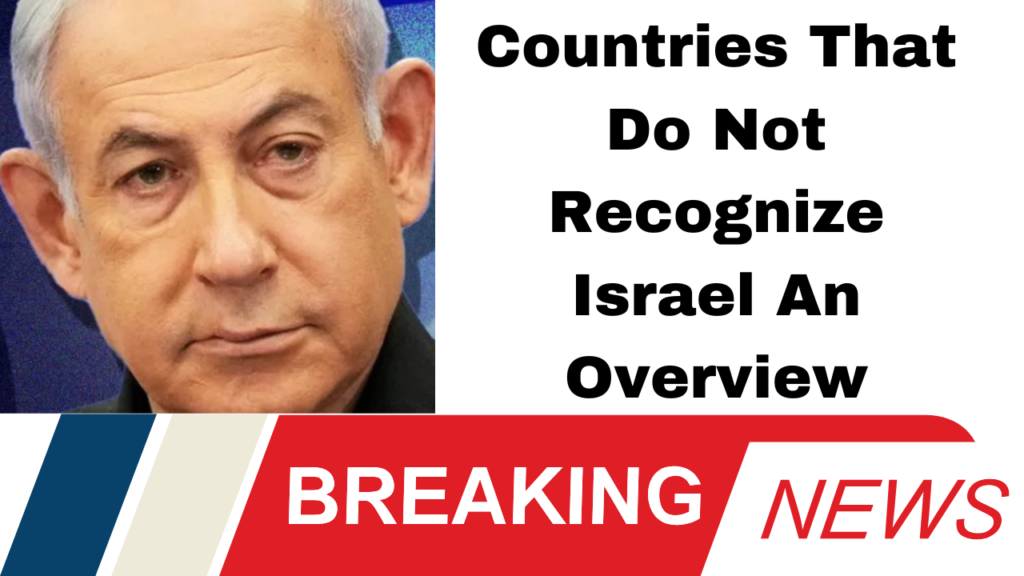Despite Israel’s declaration of independence on May 14, 1948, and its subsequent UN membership in 1949, a significant number of countries still do not recognize it as a sovereign state. This article examines the current landscape of international recognition regarding Israel, highlighting the countries that have withheld recognition and the reasons behind their stances.
Out of 193 United Nations member countries, 165 recognize Israel as an independent nation. However, 28 countries, predominantly from the Muslim world, maintain a position against Israel’s statehood, primarily due to the longstanding Israeli-Palestinian conflict.
Arab League Members
The Arab League, established in 1945, currently includes 22 member states. Among these, 15 countries explicitly do not recognize Israel. These nations are
1) Algeria
2) Comoros
3) Djibouti
4) Iraq
5) Kuwait
6)Lebanon
7)Libya
8) Oman
9) Qatar
10) Saudi Arabia
11) Somalia
12) Syria
13) Tunisia
14) Yemen
15) Mauritania
Saudi Arabia, a leading figure in the Islamic world, has consistently refused to recognize Israel since its inception. Iraq and Lebanon, known for their strong anti-Israel sentiment, have similar stances, with Lebanon being particularly influenced by Hezbollah’s ideology.
Non-Arab Muslim Countries
Beyond the Arab League, several non-Arab Muslim-majority countries also do not recognize Israel
1) Afghanistan
2) Bangladesh
3) Brunei
4) Indonesia
5) Iran
6) Malaysia
7) Maldives
8) Mali
9) Niger
11) Pakistan
Iran’s relationship with Israel deteriorated significantly after the 1979 Islamic Revolution. Pakistan has historically supported Palestinian statehood, and Afghanistan, under the Taliban, has also maintained a non-recognition stance.
Other Notable Non-Recognizers
In addition to Muslim-majority countries, a few others have chosen not to recognize Israel:
Cuba: Initially recognized Israel in 1949 but severed relations in 1973.
North Korea: Does not recognize Israel and has no formal diplomatic relations.
Venezuela: Recognized Israel in 1948 but relations soured by 2009.
The global recognition of Israel remains deeply intertwined with geopolitical dynamics and historical grievances, particularly concerning the Palestinian issue. While many countries have established diplomatic relations with Israel, the persistence of non-recognition among a diverse group of nations underscores the complexities of Middle Eastern politics. Understanding these relationships is essential for grasping the ongoing challenges in achieving peace in the region.
This examination of countries that do not recognize Israel highlights the intersection of politics, religion, and history, which continues to shape international relations today.











More Stories
Netanyahu Under Fire as Leaked Documents Scandal and Hostage Crisis Deepen
Mount Fuji’s Snowless Peak A Sign of Climate Change and Japan’s Cultural Icon in Crisis
Malik Mumbai’s 15 Crore Monthly Income ‘Haar Meri Jeet Apki Offer’ for WBBL 2024 Your Guaranteed Win or Refund!